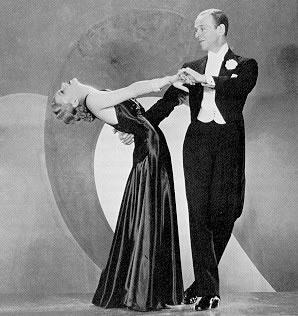Be Awesome or Sit Down: Musings on Our Spectator Culture
 A friend posted an article on Facebook a while back that lamented the serious decline in singing in American churches. The gist of it was not that American churches had succumbed to the teachings of some harsh, pious, music-hating sect - there was still plenty of music, but it wasn't the congregation providing it. They hadn't been told not to sing, quite the contrary, but the ones leading the music were very proficient well-amplified musicians performing complex music, with frequent new pieces to keep it "fresh" and demonstrate their musical chops. The poor congregations, so it would appear, just can't keep up.
A friend posted an article on Facebook a while back that lamented the serious decline in singing in American churches. The gist of it was not that American churches had succumbed to the teachings of some harsh, pious, music-hating sect - there was still plenty of music, but it wasn't the congregation providing it. They hadn't been told not to sing, quite the contrary, but the ones leading the music were very proficient well-amplified musicians performing complex music, with frequent new pieces to keep it "fresh" and demonstrate their musical chops. The poor congregations, so it would appear, just can't keep up.
The days of old Father Tom, in his creaky baritone, accompanied by an equally creaky organ, leading the flock in the umpteenth rendition of the Doxology appear to be largely passed in many congregations.
Their "joyful noise" doesn't need a bunch of untutored parishioners to be awesome.
This is not limited to church. In fact, adults don't sing in company anymore, outside the occasional binge of booze-enhanced Karaoke - unless they are pretty darn good.
Recently we attended a New Year's concert at Disney Hall and the conductor prompted the audience to join in singing Auld Lang Syne. In my particular section, other than my wife and myself, I could not hear anyone around us singing. If they were, I imagine their lips were moving but almost nothing was coming out.
Almost everyone has gotten the message: singing is for people who are good at it. Be awesome or sit down.
It was not always thus. Not so very long ago movie audiences were prompted to "follow the bouncing ball" and join in a mass rendition of what ever popular ditty was on the screen. Our grandparents joined in with gusto - as well as singing at home and in other social situations, though that declined in the 20th Century with the coming of the gramophone and the radio.
This isn't limited to music. American TV audiences are regularly regaled with talent shows and contests featuring B-List celebrities partnered with professional dancers doing dances called things like "Waltz" or "Tango", but which bear only a coincidental resemblance to anything any rational dancer would try in a social situation.
"Those people are awesome" say the spectators. "I can never be that awesome. I'll just sit down now".
This passivity seems pervasive. I recently attended a "Krampus Ball". The DJ played a few German Waltzes and Polkas and my wife and I danced. We were alone. It ended with a Krampus-themed heavy metal band playing. Not my style, but I would have expected some head-banging and in-place gyrating. Nothing. The pounding heavy metal rhythms were greeted with silent stillness.
This passivity can also be seen in an aversion to public speaking or participation in public activities, and it seems to get worse with age.
I haven't done any sort of scientific survey. I can't graph passivity and intimidation by age, sex or ethnicity. I can't say with any authority who is better or worse on this front. I can only observe that I perceive it to be a growing trend in the world around me.
Don't get me wrong, I'm all for awesome. I enjoy a good show as much as the next guy. There just needs to be some middle ground where we can admire the awesome, but be willing to get up and participate - to join in the activity rather than just sit and passively watch it - to be our own entertainment.
I guess that's one of the things that draws me to the world of historical re-creation. In re-living a time when people sang in company, I feel I have permission to sing in company. In re-living a time when everyone danced, I have permission to dance.
I don't have to be awesome. It's OK to just do the best I can.
That same license does not seem to apply outside the bubble of historical dress up. In the real world, at least in my white, Anglo, middle-class American world, you can only "perform" in the context of a performance, where you are the performer and everyone else is the audience - and you can only be a performer if you are awesome.
Last night, we were at the local Marriott hotel, and there was a fine jazz combo doing some nice, '50s style, quite danceable music. If it was 1958, people would be up and dancing to the vocalist's sizzling rendition of "Fever". Today, we all do little more than rock in our seats. I was tempted to grab my wife and start dancing, but I was put off the the knowledge that we would be the only ones and we would be "performing". We'd be part of the show, with all the baggage that entails.
While I am not shy about audiences and performing, that's not really what I was in the mood for. I just wanted to dance with my wife, as people used to dance, without the expectations of a crowd of passive spectators living vicariously through us. That, alas, is not what dancing is anymore.
